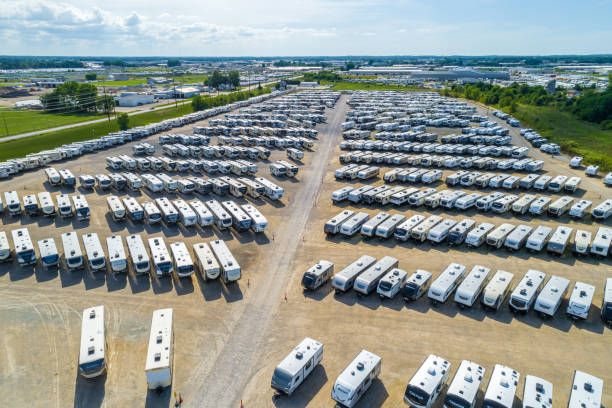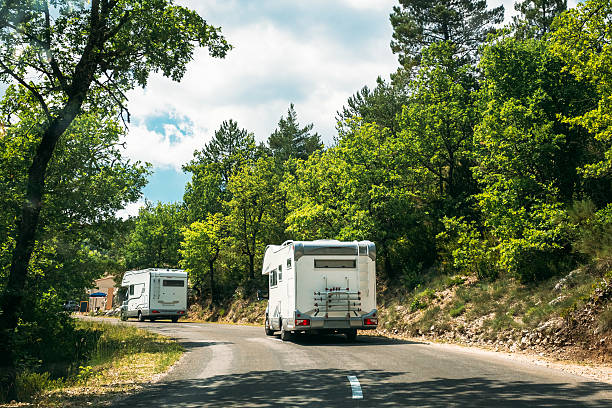.
.
When it comes to the concept of full-time RVing, there is often confusion surrounding the warranty coverage. Many people assume that if they live in their RV full-time, their warranty will cover any issues that arise.
.

.
However, it’s important to understand that most RV warranties are designed with limited use in mind, not as a permanent residence. These warranties typically offer coverage for one to two years and are based on the concept of camping rather than full-time living.
While it doesn’t mean you can’t live in your RV full-time, it’s essential to be aware of what your warranty covers in extended usage situations.
.
Manufacturer’s Perspective on Full-Time RVing
Manufacturers are aware that many RVs are used for full-time living, even though it may not align with the warranty’s intended use. They understand that accommodating the needs of full-time RVers is important for their business.

While the fine print of the warranty may technically exclude full-time living, manufacturers often extend their coverage to those who use their RVs in this manner.
However, it’s worth noting that if you explicitly inform them of your full-time usage or encounter warranty claim issues, they may invoke the limitations stated in the warranty.
It’s not a deliberate attempt to deny coverage, but rather a right they may exercise if the usage exceeds their expectations.
.
Defining Full-Time RVing and Warranty Coverage
Defining what “full-time RVing” means in terms of warranty coverage can vary between manufacturers. Some manufacturers do not provide a clear definition in their warranty guidelines, while others offer some framework.

The specifics can be murky and may change over time, making it challenging to find a definitive answer. In cases where manufacturers do provide a definition, it usually refers to occupying the RV for a specific duration, such as three or six months a year.
Essentially, full-time RVing allows for extended use and enjoyment of the RV, as long as it is not utilized solely as a primary residence.
.
Considerations and Challenges for Full-Time RVing
If you’re considering full-time RVing, there are additional factors to keep in mind. Banks may be hesitant to finance RVs for full-time use, as it goes beyond the typical intended purpose and may affect the value of the RV.
Insurance companies also tend to have limitations on full-time living and may revoke coverage if they discover that the RV is being used in that manner. This can create a challenging situation, especially if you have an outstanding loan that requires full coverage.
It’s crucial to be aware of these potential obstacles and consider them when making your decision.
.
Transparency and Decision-Making
Discussing warranty coverage for full-time RVing can be a sensitive topic, as it may dissuade potential customers. However, it is essential to provide transparent and candid information to help individuals make informed decisions.

At Bish’s RV, we believe in honesty and clarity, even if it means some customers may choose not to purchase an RV from us. We strive to provide comprehensive information to ensure that our customers can make the right choice for their needs. Our goal is to ensure your satisfaction and help you find the perfect RV for your lifestyle.
.
Conclusion
Understanding RV warranties and their coverage for full-time RVing is crucial for those considering this lifestyle. While most warranties are not explicitly designed for full-time living, manufacturers often extend coverage due to the prevalent usage patterns.
However, warranty guidelines can vary, and limitations or exclusions may apply. Defining full-time RVing can be challenging, as there is no universal definition, adding to the complexity. Financing and insurance can also pose challenges for full-time RVers.
At Bish’s RV, we believe in transparency and providing comprehensive information to help you make informed decisions. Our goal is to ensure your satisfaction and assist you in finding the perfect RV for your lifestyle, whether for full-time living or recreational use.
.
